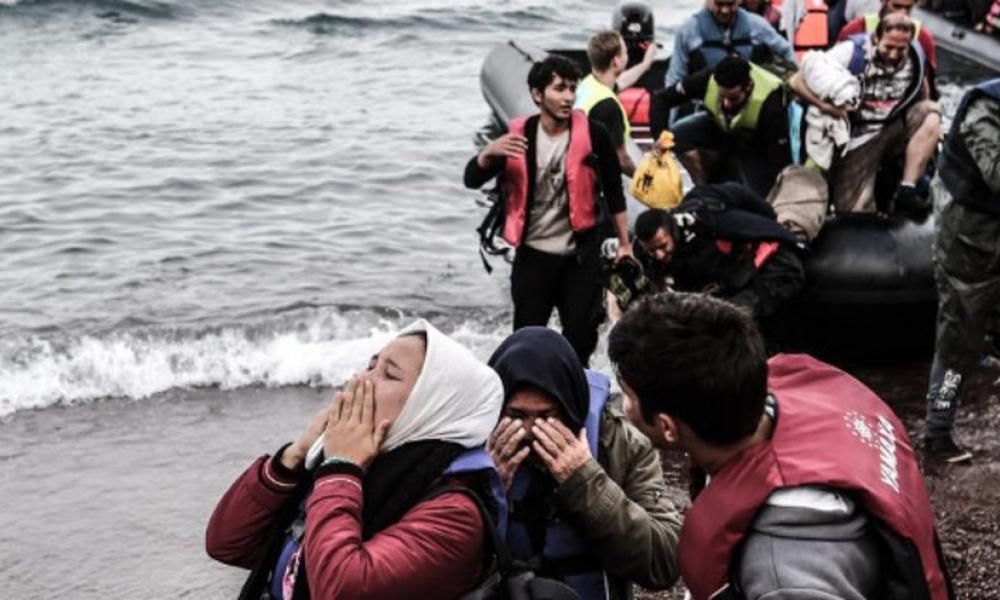Support and the tentacles of Erdoğan's regime in our country will be the main issue, as it seems, for the upcoming long and difficult period.
The stance of many migrants/refugees appears to be friendly towards Turkey, either for ideological or religious reasons, and this is known to Greek authorities.
The actions of Turkish human traffickers, who with the tolerance of the Turkish state, promote thousands of illegal migrants either from the Aegean towards our islands, or from the Eastern Mediterranean towards Crete, is also well known.
This is part of Ankara's insidious plan to alter the population, while the Turks are aware that borders in Europe have closed or are closing, especially in Germany and elsewhere.
However, the aim of the Turkish deep state and MIT is to create future problems in Greek society, while within these migrants, potential offenders of all kinds have infiltrated, who are in communication with the other side.
In November 2024, members of the terrorist organization Hamas were located in Kos, alerting Greek intelligence services, in addition to the police and the coast guard.
The protagonists of the incident in Kos, aside from being active human traffickers, were Palestinian nationals and members of the Islamic organization Hamas, raising many questions about Turkish movements, who, with the tolerance of their coast guard, continuously send people to us.
It is noteworthy that along with the two traffickers, a Palestinian was found and arrested on the island, who, as investigations showed, was related to a terrorist Islamic organization.
Recently, we are seeing the growing threat from refugee flows to Crete, which has certainly been targeted, not randomly, by Turkish human trafficking networks, who also have connections in Libya.
Thousands of migrants, after a short stay in unsuitable areas in Crete, are transferred to the Reception and Identification Center and the Controlled Temporary Shelter for Asylum Seekers in Malakasa.
This increases the number of irregular migrants in Athens, filling streets, squares, and entire neighborhoods, with all the consequences of the chaotic management of their problems (housing, food, etc.).
The issue is now significant, and unfortunately, at some point, the problem of dealing with these thousands of migrants in Greek society, which is already grappling with its own problems, will "explode."
What will happen if a Greece-Turkey crisis occurs?
Thousands of migrants and refugees are in our islands, as well as in the mainland, moving within cities.
The question here is that Ankara, in a possible crisis scenario with Greece, will seek to create an internal issue within the Greek government, using various methods (such as mass protests, etc.).
It should be noted that we are not referring to the entire foreign population in the country, as there are also thousands who work either in agriculture or in industry for a living.
We are referring to potential collaborators of the Turkish services, who will aim to create an internal issue in our country in any possible or improbable crisis scenario in the Aegean.
All of this is known to the Greek authorities, and there is a crisis management plan in place if necessary, but the issue is that migrant flows continue unabated, causing congestion in the existing refugee structures across the country.
The most immediate solution would be the resumption of deportations of these migrants to Turkey as a basic condition for any negotiations with Ankara.
The essence is that Ankara is quietly creating all the conditions to put the Aegean under siege, and this is certainly related to the "Blue Homeland" plan and the illegal Turkish-Libyan memorandum, as Turkish floating drilling rigs are planning and preparing for their descent into the Eastern Mediterranean.
The Turks are moving Marine Corps units and setting up unmanned craft units along the coasts of Asia Minor, while upgrading airbases in the same areas.
Their goal is to blackmail the Greek government into accepting Turkey's dirty plans, which, however, will not succeed under any circumstances.



